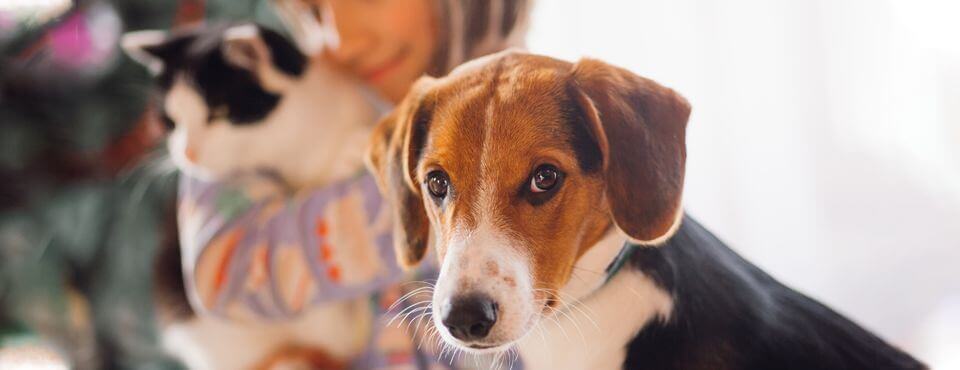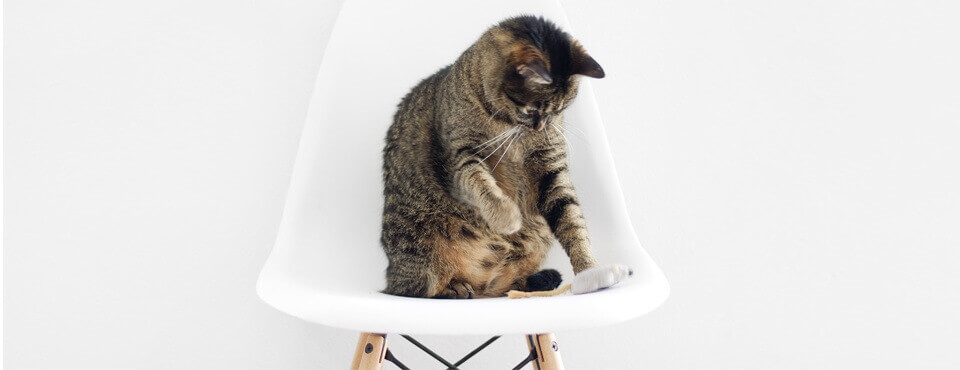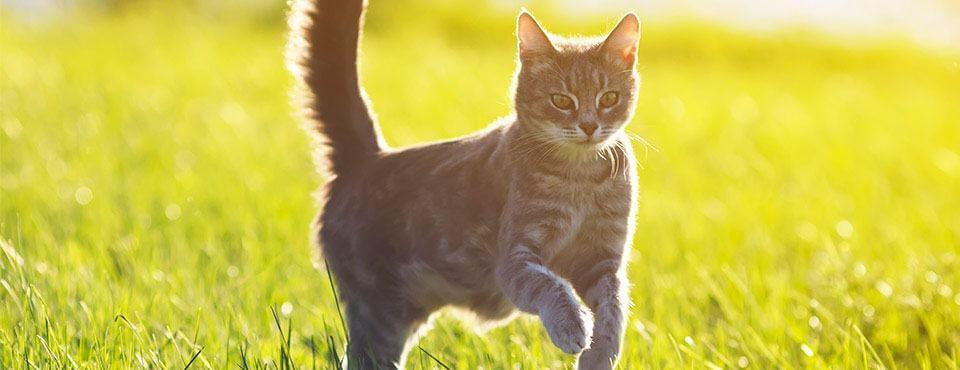Vaccinations are a way to provide your pet with protection against infectious diseases, many of which are life-threatening.
Puppies should receive antibodies from their mother (mostly via milk), which provide them with some initial protection against diseases their mother has immunity to. These maternal antibodies fade over time, leaving your puppy vulnerable to many infectious diseases.
At this point, vaccinations can provide your puppy with protection. They work by introducing a weakened or inactivated version of the disease-causing agent (e.g. a virus or bacteria) to the dog’s immune system, which then learns to recognise and fight off the real infection if exposed in future, preventing or lessening the severity of the disease.
The protection our dogs get from vaccines does not necessarily last a lifetime, so they will need top up vaccinations, often called boosters, throughout their life to ensure protection.
What should my puppy be vaccinated against?
Your puppy should initially be vaccinated against distemper, parvovirus, hepatitis and leptospirosis. These are called core vaccines as these serious diseases can pose a risk to all puppies and dogs in the UK.
Depending on how social your dog is, whether they’re a regular at the local park, enjoy holidays with you, or spend time in kennels or daycare, your vet may recommend additional vaccinations, such as protection against canine cough or rabies.
When should my puppy be vaccinated?
Puppies need an initial course of vaccinations to gain protection, which normally span two or three visits to the vet. The first vaccine of the course is typically given from around six to eight weeks of age. Often when you collect your puppy, they will have already had their first injection(s) and you will need to visit the vets for their next injection(s) for them to gain protection.
It is important not to delay vaccinations because, while puppies receive some immunity from their mother, that protection declines quickly. It is also important to return at the advised time for their follow up vaccines to ensure they get the best chance of protection.
How do I know what vaccines my puppy has already received?
The breeder, charity, or prior owner should be able to provide a record of your puppy’s vaccinations and any other relevant medical information. Your vet can then advise on what vaccines are due next and when, as well as answer any questions you may have. If you do not have such a record, speak with your vet for advice.
I think my breeder vaccinated my puppy, do they need more and why?
Puppies need an initial course of vaccinations to gain protection, which normally span two or three visits to the vet. This is often called their ‘primary course.’
The first vaccine of the course can be given as early as 6 weeks of age so that often when you collect your puppy at six to eight weeks of age, it is likely they would have already had their first injection(s) and you will need to visit the vets for their next injection(s) for them to gain protection.
Your puppy should come with a vaccination record detailing what vaccinations your puppy has received and when. You should register with a vet as soon as possible and share this information with them, including the names of the vaccines, so they can advise you what vaccinations are still due and when so you can get booked in.
If your puppy has not already been vaccinated, or you are unsure because you have not received a vaccine record, contact your local vet practice and they will be able to advise you on how to organise your puppy’s primary course.
It is important not to delay vaccinations because, while puppies receive some immunity from their mother, that protection declines quickly. It is also important to return at the advised time for their follow up vaccines to ensure they get the best chance of protection.
Are vaccines safe for my puppy?
All pet vaccines and prescription medicines have to meet strict safety, quality and efficacy requirements of the Veterinary Medicines Directorate (VMD) before they are approved for use in UK pets. Once approved, data is then constantly collected on vaccine use and any side effects experienced. If you have any specific concerns, please speak to your veterinary team.
How long do vaccinations last?
The protection our dogs get from vaccines does not last a lifetime, so after their primary course, they will need top up vaccinations, often called boosters, throughout their life to remain protected.
Different vaccines have been proven to last longer than others, typically between one to three years. Your vet is the best person to advise you, but normally you will be advised to revisit the vet at once yearly for a health check and booster of whichever vaccines they are due that year.
Can my puppy go outside and socialise?
Socialising your puppy is crucial for their development into a confident, well-adjusted dog. However, care should be taken when considering how and when to approach socialisation to minimise their risk of catching diseases.
Your puppy won’t be fully protected until the full primary course has been completed and sufficient time has elapsed for immunity to develop (typically around 2-3 weeks). This doesn’t necessarily mean that socialisation and habituation has to wait completely until all primary vaccines are complete, but you should talk to your practice about a phased approach to minimise the disease risks yet still allow good development of your pup’s behaviour.
Your vet will be the best person to advise you on what you can do with your puppy and when depending on the vaccinations they have had.
Why should I keep vaccinating as my puppy gets older?
Even as your puppy grows into a healthy adult dog, it’s essential to keep up with their annual booster vaccinations. Just because you haven’t seen signs of disease doesn’t mean the risk isn’t there, many serious illnesses can be prevented with regular protection. Staying disease-free means more than just avoiding illness, it means more time chasing tennis balls, more care-free walks in the park, more tail wags, and more memories made together. Your vet will ensure your dog stays protected year after year, tailoring their care as they grow and their lifestyle changes. Keeping up with boosters is one of the simplest and most loving things you can do to give your dog a long, happy, and healthy life.
Your vet plays a big role in your pet’s health. Enter your location and get a list of vets near you.
FIND A VET














 Go To United States
Go To United States Austria
Austria Belgium
Belgium Czech Republic
Czech Republic Denmark
Denmark Europe
Europe Finland
Finland France
France Germany
Germany Greece
Greece Hungary
Hungary Ireland
Ireland Israel
Israel Italy
Italy Netherlands
Netherlands Norway
Norway Poland
Poland Portugal
Portugal Romania
Romania Slovakia
Slovakia Spain
Spain Sweden
Sweden Turkey
Turkey United Kingdom
United Kingdom